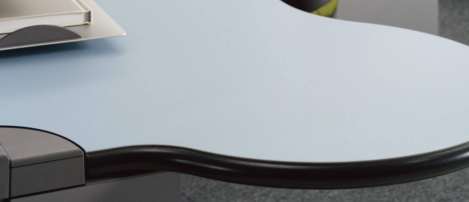October 7, 2015
Millennial workers value variety over job security and tenure 0
 Employers may continuously be looking at ways to engage staff to ensure they still loyal to the organisation, but according to new research it seems they needn’t bother. Over one third (37 percent) of US workers — regardless of their satisfaction level — are seriously considering leaving their organizations, up from 33 percent of the workforce who were considering leaving in 2011. According to Mercer’s latest Inside Employees’ Mind research, which surveyed 3,000 people representing a complete cross-section of the US workforce, nearly one out of two employees who said they are very satisfied with their organizations and their jobs (45 percent and 42 percent, respectively) are still looking to leave. And perhaps unsurprisingly, it’s the Millennial workers who seem to value accelerated career paths and diversity (in the workplace and the work itself) over job security and tenure.
Employers may continuously be looking at ways to engage staff to ensure they still loyal to the organisation, but according to new research it seems they needn’t bother. Over one third (37 percent) of US workers — regardless of their satisfaction level — are seriously considering leaving their organizations, up from 33 percent of the workforce who were considering leaving in 2011. According to Mercer’s latest Inside Employees’ Mind research, which surveyed 3,000 people representing a complete cross-section of the US workforce, nearly one out of two employees who said they are very satisfied with their organizations and their jobs (45 percent and 42 percent, respectively) are still looking to leave. And perhaps unsurprisingly, it’s the Millennial workers who seem to value accelerated career paths and diversity (in the workplace and the work itself) over job security and tenure.







 The commercial property markets in the world’s major cities are evolving against a backdrop of ongoing economic and political uncertainty, according to
The commercial property markets in the world’s major cities are evolving against a backdrop of ongoing economic and political uncertainty, according to 
 I was involved in a meeting with an office fit-out company this week which involved a discussion of how their clients can develop misconceptions about the extent to which their contemporaries are introducing new office design and management models based on agile working, shared space, mobile technology and all that other good stuff. This presents a particular challenge for firms in the sector because their day to day experiences of what clients talk about and ask from them can be pretty removed from the things talked about in the media. If you were to judge the state of the office solely on the basis of what you read and hear and see at shows, it would be easy to conclude that the office is indeed dying and dragging down with it the markets for office furniture, commercial property and traditional technology. The problem is that the facts don’t support that notion at all.
I was involved in a meeting with an office fit-out company this week which involved a discussion of how their clients can develop misconceptions about the extent to which their contemporaries are introducing new office design and management models based on agile working, shared space, mobile technology and all that other good stuff. This presents a particular challenge for firms in the sector because their day to day experiences of what clients talk about and ask from them can be pretty removed from the things talked about in the media. If you were to judge the state of the office solely on the basis of what you read and hear and see at shows, it would be easy to conclude that the office is indeed dying and dragging down with it the markets for office furniture, commercial property and traditional technology. The problem is that the facts don’t support that notion at all.























October 7, 2015
Why Jeremy Hunt is wrong about the need to work long hours 0
by Mark Eltringham • Comment, Flexible working, Wellbeing, Workplace
(more…)